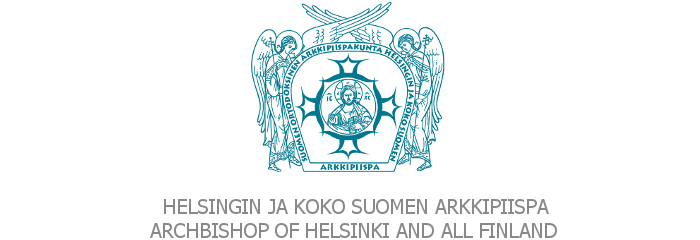Ladder up to heaven
"Joachim and Anna were set free from the reproach of childlessness by thy holy birth, O thou most pure, and Adam and Eve from the corruption of death. Thy people also celebrate they birth."
The birth of Mary was a great event for the righteous Joachim and Anna (St. Luke 10:38-42, 11:27-28). Many couples in our day have to wait for years for the gift of children, and some may never achieve the offspring that they so eagerly desire. From a human perspective, childlessness can be a very difficult matter for a couple, and it was all the more so for the Jews in Old Testament times.
This is what made it so important for Joachim and Anna. But it was also a decisive moment in the whole history of the salvation of mankind. It is for this reason that, in the words of the Kontakion, the people of God celebrate on this day, the eight of September. The birth of a child to Joachim and Anna meant for them the fulfilment of the hopes of several decades, the knowledge that their earnest prayers to God had been answered.
The scorn and ridicule that they had had to suffer because of their childlessness had come to an end. As St. Andrew of Crete teaches us, "If it is an extraordinary thing that a barren woman should bear a child, it is no less amazing that a virgin should give birth. It was necessary, as Our Lord showed, for He who is everything and encompasses everything to perform this miracle and make an infertile woman into a mother."
In other words, this church father saw in the birth of the Virgin Mary to a woman who was infertile a precedent foreshadowing the occurrence of a still greater miracle - that this Virgin should give birth to Christ.
The birth of the Virgin Mary is the first of the great feast-days of the church year, an event that foresees the rise of the new covenant between God and men, the lifting of the curse and the beginning of an age of blessing for all mankind. As St. Photios, Patriarch of Constantinople, put it, "It was the birth of the Virgin Mary that formed the ladder that rose up to heaven so that human nature could escape from its enclosure and move to its celestial abode".
Our Lord was preparing a holy throne for Himself on earth, sanctifying everything on the face of the earth and bringing the heavenly host to dwell amongst us. All the treacherous and deceitful acts of the Evil One who betrayed us at the beginning of time will lose their power." The birth of the Virgin Mary is truly a "message of joy", for it is the first of all the celebrations of the new covenant, the birth of she through whom the Saviour was to come into the world.
Although the texts for this feast-day place a great deal of emphasis on the forefathers of Our Lord, the righteous Joachim and Anna, we do in fact remember them throughout the church year, as we appeal for their intercessions in the final blessing that closes each of our church services. Why do we do this?
Today's festival gives us an answer to this question. Through the years and decades of patient waiting, suffering the scorn and ridicule of the people around them, Joachim and Anna never gave in to doubt. Their one and only joy and comfort was ardent, unceasing prayer. This persistent, unrelenting prayer gradually filled their whole beings and transformed them in the likeness of God. They did not cease praying even though it seemed that no answer would ever come, and eventually their faithfulness was rewarded. God deemed them worthy of becoming the forefathers of Our Lord.
Joachim and Anna are not only intercessors for us; they are examples to us of persistent, committed prayer. Just like them, we should engage in prayer faithfully and unceasingly, day in - day out, year in - year out. It is not for us to dictate the terms and state the times.
God will listen to us and will answer us at the right time and in the manner necessary for the salvation of our souls. In our day, as ever, here in Sibiu, in our Europe, in all over the world, his promise is "Ask and you shall receive." Amen.
Homily during the Divine Liturgy in Sibiu, Romania




